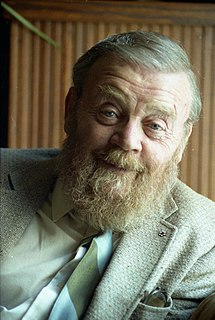A Quote by Charles Bukowski
A dry period for me means perhaps going two or three nights without writing. I probably have dry periods but I'm not aware of them and I go on writing, only the writing probably isn't much good.
Related Quotes
If you have to find devices to coax yourself to stay focused on writing, perhaps you should not be writing what you're writing. And if this lack of motivation is a constant problem, perhaps writing is not your forte. I mean, what is the problem? If writing bores you, that is pretty fatal. If that is not the case, but you find that it is hard going and it just doesn't flow, well, what did you expect? It is work; art is work.
I don’t worry anymore about writing. There are times that I go through dry periods. I never go through a block. I’m always writing, but there are times where I’m just not on my game, and I’ll use that time to read some new poets, go see some art, walk down to the river and just stare at it, or have a conversation with my sister, or whatever—do whatever it is that I do in my life, hoping that I’ll get filled up enough. And something will happen, some juggling will happen and boom.
'A Fair Maiden' existed in notes and sketches for perhaps a year. When I traveled, I would take along with me my folder of notes - 'ideas for stories.' Eventually, I began to write it and wrote it fairly swiftly - in perhaps two months of fairly intense writing and rewriting. Most of my time writing is really re-writing.
I don't remember reading much at all during the writing of Eileen. I go through several years-long dry spells and I don't feel like reading at all. I was working part-time for a guy in Venice, California while I drafted Eileen. He wanted help in writing his memoir. The research had a lot to do with the 60s, so that must have informed my sense of the place and time in my novel, and perhaps even the memoir point-of-view. He was also from New England. It was a fun job. I learned a lot about motorcycle clubs, Charles Manson, hopping freight trains.
So here I am, sending a two-ounce mouse down into a dungeon with a sewing needle to save a human princess, and I don't know how in the world he's going to do it. I have no idea. That was the first time it occurred to me that writing the story was roughly equivalent to Despereaux's descent into the dungeon. I was tremendously aware of that as I was writing. I thought, "I have to be brave or else I'm not going to be able to tell it." But it's the only way that I can write. If I know what's going to happen, I'm not interested in telling the story.
I tend to work most often from the method of ignoring any ritualistic writing for long periods of time, and then I'll spend three straight weeks writing for 12 hours a day and just going through the motions with my worldly business because the compulsion to write descends upon me like a kind of madness. I don't mean to be dramatic, but it feels that way when it strikes.
Further, in writing, I feel corrupt and unethical if I have to look up a subject in a library as part of the writing itself. This acts as a filter--it is the only filter. If the subject is not interesting enough for me to look it up independently, for my own curiosity or purposes, and I have not done so before, then I should not be writing about it at all, period. It does not mean that libraries (physical and virtual) are not acceptable; it means that they should not be the source of any idea.







































